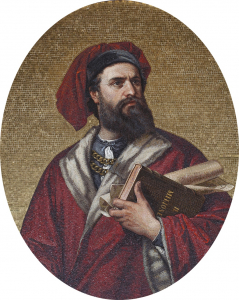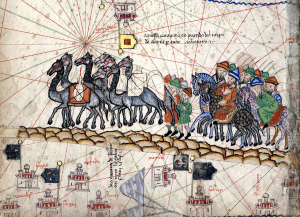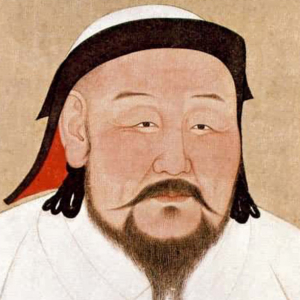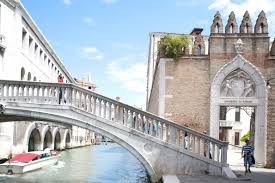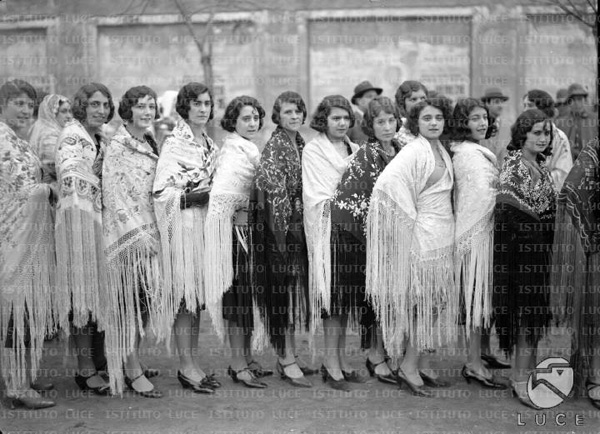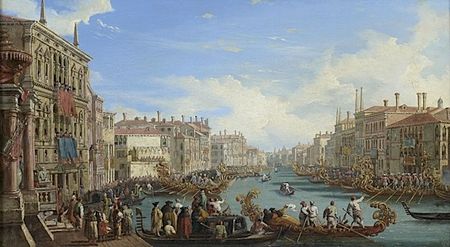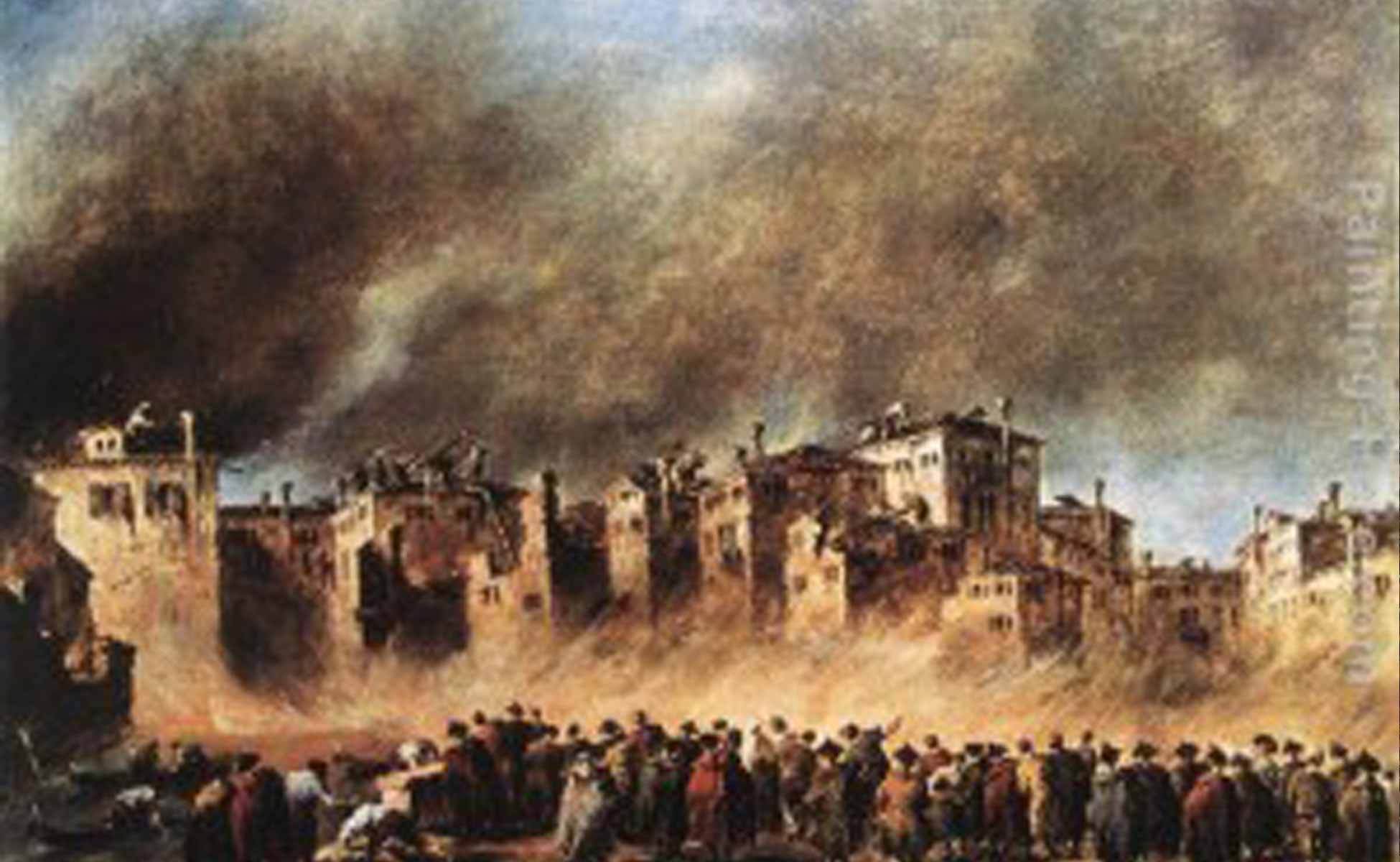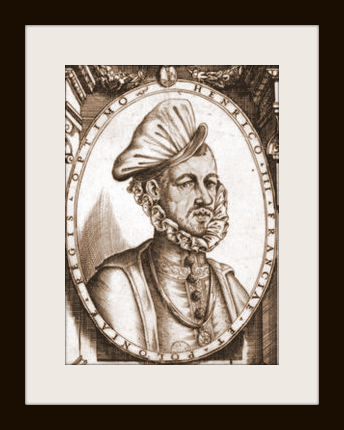Venice airport doesn't hold the name Marco Polo for nothing. Indeed, it is the most famous Venetian and the most representative of Venice's commercial and diplomatic greatness.
Polo was born on 15 September 1254 in Venice into a jeweller's family. At the age of 17, he undertook a long journey of 24 years to China. His stories immortalized in the Book of World Wonders toured the royal courts and influenced the greatest explorers.
At that time, Venice was a prosperous city dominating Byzantium, and its rich merchants took advantage of this to trade with the Muslims who controlled the Silk Road. Niccolo Polo, Marco Polo's father, ventured to China to meet the Mongol Emperor Kublai Khan.
After fifteen years of absence, Niccolo returns with a mission of the utmost importance: to ask the Pope to bring to China scholars who could transmit to the East the knowledge of the Latins. However, once in Venice, Niccolo has a fifteen-year-old son named Marco. Two years later, in 1271, Marco left for China accompanied by his father and uncle. He does not know at that time that the journey will last 24 years and that he will not be back before he is 41 years old.
Travellers first cross Israel, then Iran, before reaching Central Asia. In 1275, they entered the court of Emperor Kublai Khan. They will stay there for 16 years. Kublai,
refined sovereign, appreciates the cultural contribution of the Venetians. However, Marco, his father and uncle miss Venice and pray to the Emperor to let them go.
On their return to Venice, the city is in conflict with Genoa. On 8 September 1298, Marco Polo led a galley in a sea battle between the two powers. The Venetian fleet was defeated and Marco was taken prisoner. Sharing his prison with Rustichello of Pisa, a Genoese novelist, he dictates his stories to him. This is how the Book of Wonders of the World is born. Once Marco Polo is freed, his book is a dazzling success. At a time when Europeans knew nothing about the Far East, except for the merchants, who however rarely left the Silk Road, this book brought exceptional knowledge.
Scientific description or purely fictitious narrative? Opinions differ as to the veracity of the facts described in the Book of World Wonders. It should be remembered that the text was written by a novelist at a time when epic tales were authoritative and, above all, that in the absence of printing, the text was certainly modified in small touches by the copyist monks. Nevertheless, despite the criticisms made of it, the importance of Marco Polo's narrative in medieval and Renaissance Europe is not in doubt. It was under the influence of this work that Christopher Columbus set sail to open a new route to India.

